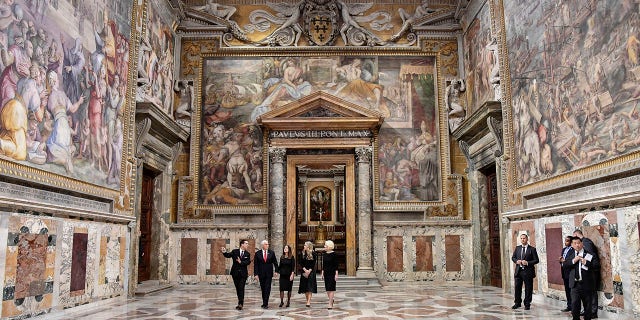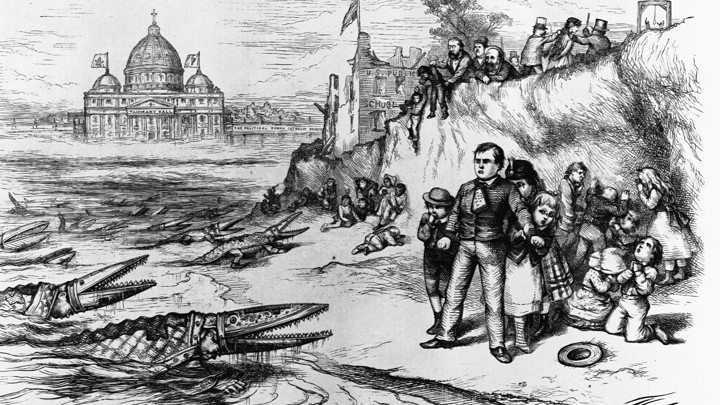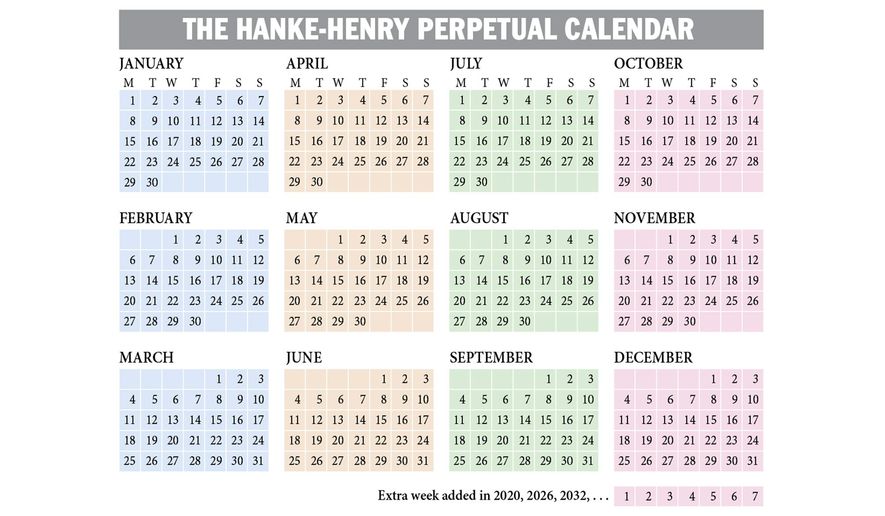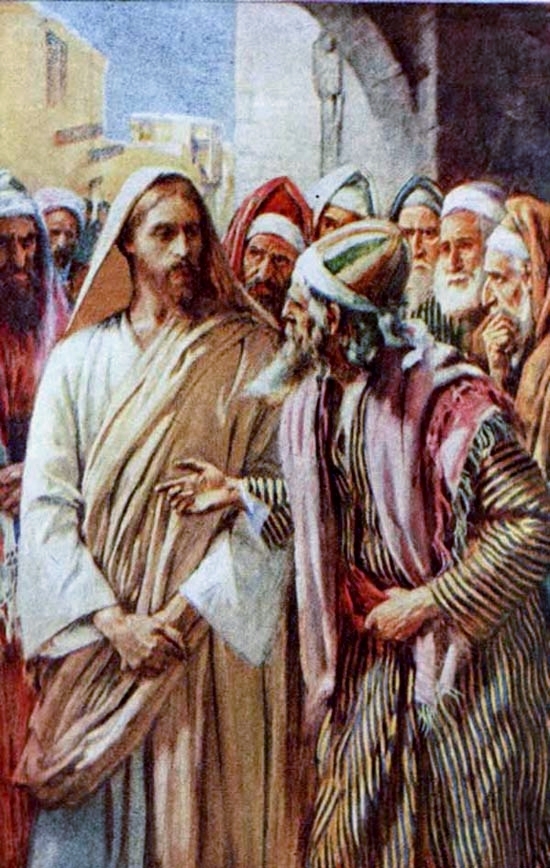 A
mere profession of godliness is worthless. It is he that abideth in
Christ that is a Christian. For “every man that hath this hope in him
purifieth himself, even as he is pure.” In every clime, in every nation,
our youth should cooperate with God. The only way a person can be pure
is to become like-minded with God. How can we know God?—By studying his
word. “And this is life eternal, that they might know thee the only true
God, and Jesus Christ whom thou hast sent.”
A
mere profession of godliness is worthless. It is he that abideth in
Christ that is a Christian. For “every man that hath this hope in him
purifieth himself, even as he is pure.” In every clime, in every nation,
our youth should cooperate with God. The only way a person can be pure
is to become like-minded with God. How can we know God?—By studying his
word. “And this is life eternal, that they might know thee the only true
God, and Jesus Christ whom thou hast sent.” Of what profit is it to say pleasant things, to deplore the works of Satan, and yet at the same time to enter into the fulfillment of all his devices? This is being double-minded. “Wash ye, make you clean: put away the evil of your doings from before mine eyes, cease to do evil; learn to do well; seek judgment, relieve the oppressed, judge the fatherless, plead for the widow. Come now, and let us reason together, saith the Lord: though your sins be as scarlet, they shall be as white as snow; though they be red like crimson, they shall be as wool. If ye be willing and obedient, ye shall eat the good of the land: but if ye refuse and rebel, ye shall be devoured with the sword: for the mouth of the Lord hath spoken it.”
There must be a cleansing of the hands, and a purifying of the double mind. “Be afflicted, and weep and mourn: let your laughter be turned into mourning, and your joy into heaviness.” It is right to be cheerful, and even joyful. It is right to cultivate cheerfulness of spirit through sanctification of the truth; but it is not right to indulge in foolish jesting and joking, in lightness and trifling, in words of criticism and condemnation of others. Those who observe such persons who make a profession of religion, know that they are deceived. They know that the hands of such professors need to be cleansed, their hearts need to be purified. They need to experience genuine repentance for sin. What have they to mourn over? They should mourn over their inclination to sin, over the danger they are in from inward corruption and from outward temptation. They should be afraid because they have so feeble a sense of the sinfulness of sin, and so little idea of what constitutes sin.
When you truly repent of sin, you will not be satisfied to acknowledge simply that you are sinful, and let the matter rest there. Do you intend to remain sinful while life shall last? Do you mean to violate your conscience? Do you mean to do evil always? What does the Lord say to those who have had light, and yet have failed to live in accordance with it? “Therefore to him that knoweth to do good, and doeth it not, to him it is sin.” “Humble yourselves in the sight of the Lord, and he shall lift you up.” There is a repentance of sin that needeth not to be repented of. “And every man that hath this hope in him purifieth himself, even as he is pure.”
Does this text mean that the human agent can remove one stain of sin from his soul?—No. Then what does it mean to purify himself?—It means to look upon the Lord's great moral standard of righteousness, the holy law of God, and see that he is a sinner in the light of that law. “Whosoever committeth sin transgresseth also the law: for sin is the transgression of the law. And ye know that he was manifested to take away our sin; and in him is no sin.” It is through faith in Jesus Christ that the truth is accepted in the heart and the human agent is purified and cleansed. Jesus was “wounded for our transgressions, he was bruised for our iniquities: the chastisement of our peace was upon him; and with his stripes we are healed.” Is it possible to be healed, while knowingly committing sin?—No; it is genuine faith that says, I know that I have committed sin, but that Jesus has pardoned my sin; and hereafter I will resist temptation in and through his might. “Every man that hath this hope in him [abiding in him] purifieth himself, even as he is pure.” He has an abiding principle in the soul, that enables him to overcome temptation. “Whosoever abideth in him sinneth not.” God has power to keep the soul who is in Christ, when that soul is under temptation. “Whosoever sinneth hath not seen him, neither known him.” That is, every one who is a true believer is sanctified through the truth, in life and character. “Little children, let no man deceive you: he that doeth [not professeth to do] righteousness is righteous, even as he is righteous.” “Whosoever is born of God doth not commit sin; ... because he is born of God. In this the children of God are manifest, and the children of the devil.” Now mark where the distinction is made: “Whosoever doeth not righteousness is not of God, neither is he that loveth not his brother.” “My little children, let us not love in word, neither in tongue, but in deed and in truth.” The Youth's Instructor, February 15, 1894










